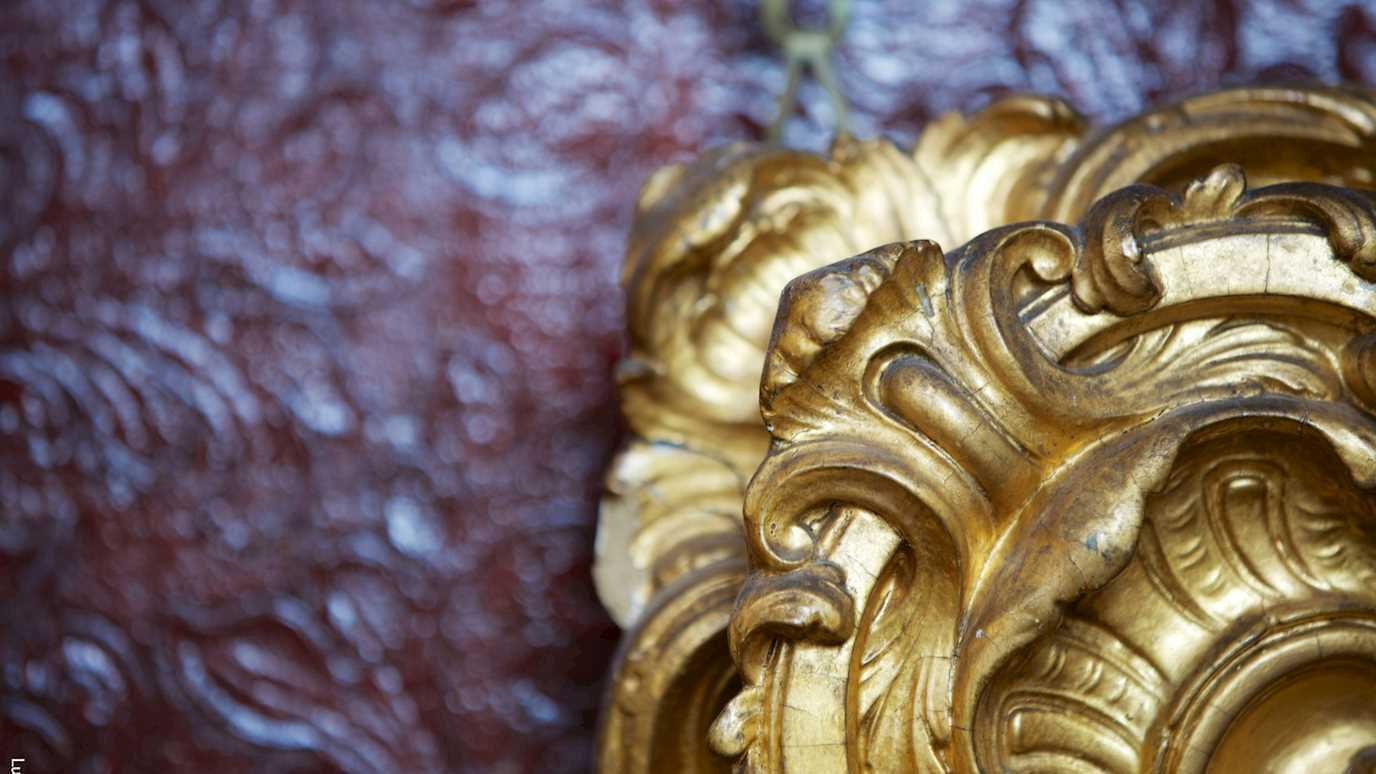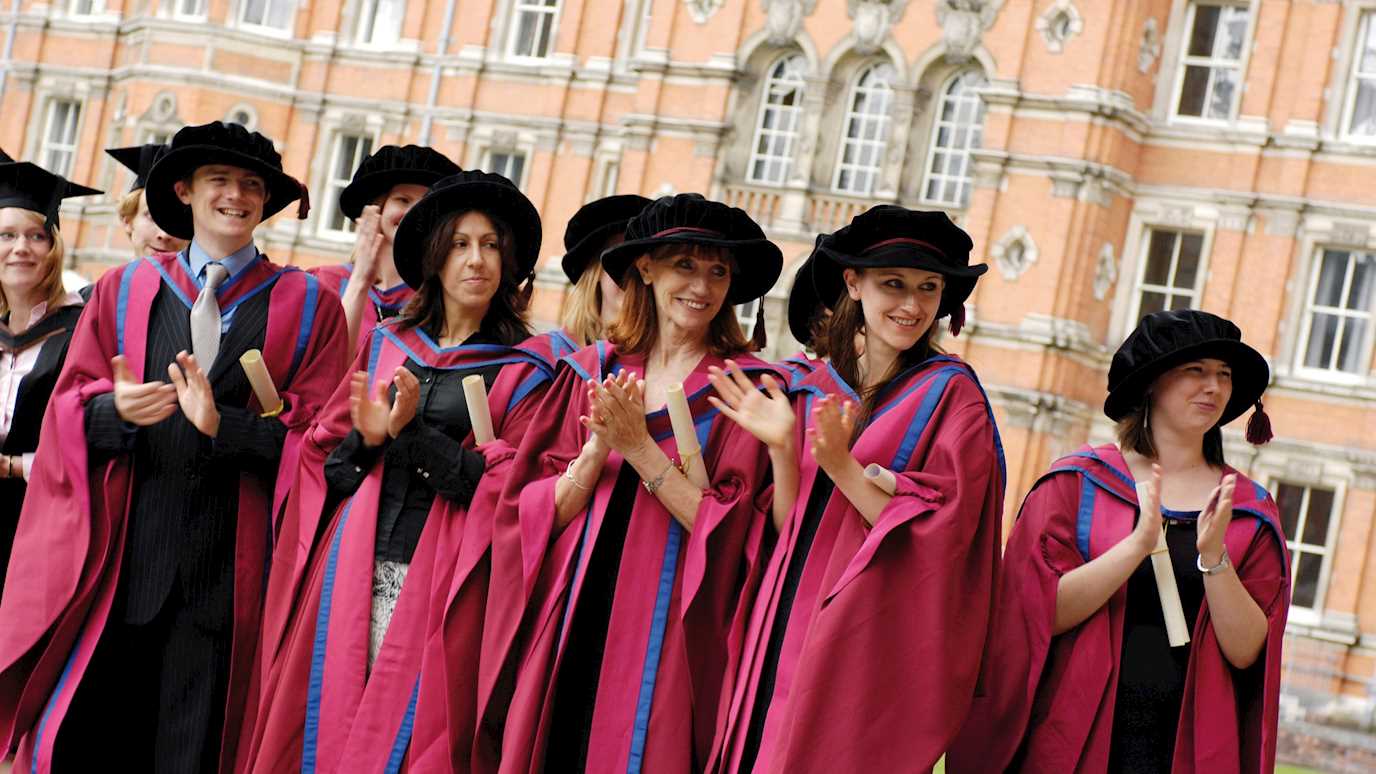Key information
Duration: 4 years full time or 5 years part time
Institution code: R72
Campus: Egham and Central London
UK fees*: £4,786
International/EU fees**: £25,500
About us
We are one of the largest and most diverse history departments in the United Kingdom. We offer expert supervision in a wide range of subject areas, both in geographic and chronological terms - from the Reconstruction South of the US to colonial Tahiti, and from ancient Rome to contemporary Britain.
Research clusters with a global reputation include the study of the Holocaust and comparative genocide, material culture and gender history, Public History, the history of South Asia and the Islamic World, the history of early Christianity and Late Antiquity, and Byzantine and Crusading History.
Our postgraduate student body is as diverse as our subject specialisations, including many overseas and mature students. Our department places central importance on public engagement with many of our colleagues sharing their expertise regularly on television and radio, and writing for a wider reading public. We also maintain close partnerships with institutions like the British Museum, the Museum of London, Kew Gardens and the Imperial War Museum to give our research public impact.
Research facilities and environment
Much of our research is organised in dedicated research centres and research clusters that run seminar programmes, prestigious annual lectures, and conferences. Centres and Institutes based in the Department of History include The Holocaust Research Institute, Hellenic Institute, Bedford Centre for the History of Women and Gender, London Centre for Public History and Heritage, and Centre for the Study of the Body and Material Culture). Our emphasis on Public History is reflected in a range of institutional partnerships that include several collaborative PhD projects.
Our doctoral programme is funded by the TECHNE consortium, a network of academic institutions with a humanities focus that favours interdisciplinary research with public impact.
Royal Holloway houses a growing research archive with material related to Victorian history, women’s history and South Asian history. As a London university we also offer easy access to the British Library, the National Archives, Senate House Library, the Institute of Historical Research, The Commonwealth Institute, The Wiener Library, and a host of other research bodies and institutions.
Assessment
MRes degrees require dissertation of up to 40,000 words which is assessed by an internal and external examiner. Similar to a PhD degree, the dissertation is not graded, but assessed for necessary corrections. A viva voce is only required at the examiner’s request.
PhD degrees require a dissertation of up to 100,000 words which is assessed by an internal and external examiner (not members of the supervisory team). The dissertation is not graded but assessed for necessary corrections. A viva voce examination is a required part of the assessment process.
Entry requirements
We require a 2:1 undergraduate degree or equivalent in History or a cognate subject. Non-standard backgrounds may be considered.
For the MPhil/PhD we normally require a good Masters degree in History or in a subject that is cognate with History (such as Politics or English Literature).
Before applying we recommend securing a supervisor in order to apply for your research project.
We advise getting in touch with the Director of Postgraduate Education making an informal enquiry for your chosen research degree to inquire whether there is any other additional material they require you to submit in your application.
English language requirements
All teaching at Royal Holloway is in English. You will therefore need to have good enough written and spoken English to cope with your studies right from the start.
The scores we require
- IELTS: 6.5 overall. Writing 7.0. No other subscore lower than 5.5.
- Pearson Test of English: 61 overall. Writing 69. No other subscore lower than 51.
- Trinity College London Integrated Skills in English (ISE): ISE III.
- Cambridge English: Advanced (CAE) grade C.
- TOEFL ib: 88 overall, with Reading 18 Listening 17 Speaking 20 Writing 26.
Country-specific requirements
For more information about country-specific entry requirements for your country please see here.
Your future career
We are proud of our many successful postgraduate research students that have gone on to academic positions in the UK and around the world. Several recent holders of doctoral awards have joined the civil service, or are working in the burgeoning heritage and museum sector. But this is by no means the only career choice available to History PhDs and MPhils. The skills associated with working on a disciplined research project for an extended period of time are also valued by employers outside the university system. For a small but significant number of mature students a research degree marks a break from a successful professional career, and a chance to cultivate life-long specialist research interests.
Fees & funding
Home (UK) students tuition fee per year*: £4,786
EU and International students tuition fee per year**: £25,500
Other essential costs***: There are no individual costs greater than £50 per item.
…How do I pay for it? Find out more about funding options, including loans, grants, scholarships and bursaries.
* and ** These tuition fees apply to students enrolled on a full-time basis in the academic year 2025/26.
* Please note that for research courses, we adopt the minimum fee level recommended by the UK Research Councils for the Home tuition fee. Each year, the fee level is adjusted in line with inflation (currently, the measure used is the Treasury GDP deflator). Fees displayed here are therefore subject to change and are usually confirmed in the spring of the year of entry. For more information on the Research Council Indicative Fee please see the UKRI website.
** This figure is the fee for EU and international students starting a degree in the academic year 2025/26.
Royal Holloway reserves the right to increase fees for overseas fee-paying students annually. Be aware that tuition fees can rise during your degree (if longer than one year’s duration), and that this also means that the overall cost of studying the course part-time will be slightly higher than studying it full-time in one year. The annual increase for continuing students who start their degree in 2025/26 will be 5%. For further information see fees and funding and the terms and conditions.
*** These estimated costs relate to studying this particular degree at Royal Holloway during the 2025/26 academic year and are included as a guide. Costs, such as accommodation, food, books and other learning materials and printing, have not been included.






















